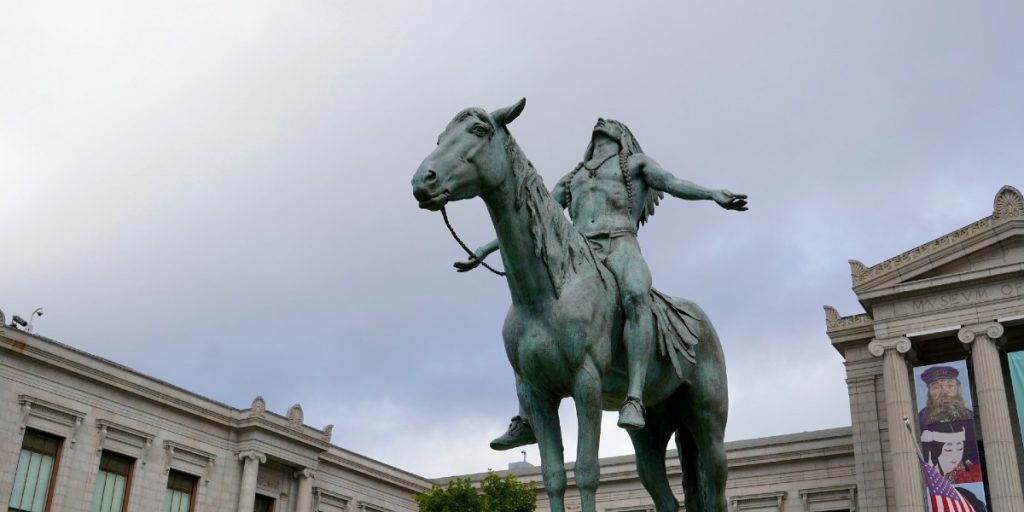On my 18th birthday, I sent a message to a couple hundred people in my network who were older than me and asked them a single question: “What is the thing you most regret not doing when you were 18 years old?”
The recipients were a diverse bunch: entrepreneurs, writers, grad students, engineers, bankers.
One theme kept coming up in the replies: People regretted not traveling more when they were younger. For example, Dick Costolo, who later became CEO of Twitter, said: “I most regret not spending a year somewhere outside the US before going to college. I generally believe that spending a year abroad, anywhere abroad, offers you a much greater perspective on the world.” Venture capitalist Brad Feld said, among other things: “Not enough worldwide travel.”
At that point in time, I had never left the United States. Shortly after conducting the regret poll, I sought to address my lack of a passport—and preempt any late-in-life regret myself. I took some time off and traveled for nearly 2.5 months around the world. My trip had a twist: rather than stay at anonymous hotels, I crashed on the couches, beds, and futons of readers of my blog in countries ranging from China to India, Italy to Ireland. These readers took me into their homes, explained their cultures, and introduced me to a way of thinking that sometimes differed dramatically from my default worldview.
Traveling for the first time opened my eyes to many things, including to this: Entrepreneurial thinking comes in all shapes and sizes…and places. Until that point, I thought a “real” entrepreneur was someone who lived in Bay Area and created internet companies — someone just like me. Talk about living in a bubble. The blog reader who hosted me in Shanghai was just as adaptive, risk seeking, and networked as my friends in Silicon Valley and yet he wasn’t founding a new internet company. He was applying his entrepreneurial verve to his career as a digital musician. I began thinking: Perhaps entrepreneurship was more a life idea than a strictly business one; a global idea rather than a strictly Silicon Valley one.
Meeting entrepreneurial people around the world who embodied the best of the Silicon Valley mindset and skill set inspired my passion for The Start-up of You, the book I co-authored with Reid Hoffman. I spent two years of my life working on that project. In one sense, the book is about capturing the universal wisdom of the entrepreneurial mindset and skill set and making it accessible to a variety of people pursuing a variety of career paths—in a variety of countries and cultures.
Fast forward to today, I’ve traveled to 40+ countries. I’ve met with thousands of people in these countries. I’ve sat down with CEOs and bureaucrats, diplomats and educators, and too many entrepreneurs and investors to count. It’s been a whirlwind!
Trending: How to Transform Daily Habits into Life-Changing Rituals
What began as an adventure in response to the wisdom of my network—travel while young, travel while you can!—turned into a major intellectual and impact project. And that, in turn, has created opportunities for me to contemplate and experience the phenomenon of globalization even more thoroughly.
The other week, I told a friend that I was committed to “living a global life.”
The first and most important part of a global life’s appeal is simplest: travel is fun. It’s fun in part because it’s a constant learning curve. So if you love learning, as I do, it’s hard not to love deciphering a culture and unpacking some deep rooted assumption somebody has simply because that’s the way it’s always worked in their culture. Sure, it can be disorienting to travel in a country in East Asia and discover that the street numbers of buildings are based on when the building was constructed instead of sequentially in order along a street. Or sure, it was frustrating to sit through 30 minutes of “thank yous” as the host of my event in Indonesia paid due respects to the various powerful people in the room, before calling me up on stage, leaving me only 30 minutes to speak. But the ideas behind that cultural norm—around hierarchy, respect of elders, status signaling, the power dynamic between speakers and audiences—are fascinating. And utterly fun to understand.
I Pledge Allegiance to…the Tribe That Is Humanity
Travel, in all its learning and fun, involves going out in the world. Yet, building a global life also forces you travel within. Travel has deepened my own perspective on how I relate to the strangers around me. Leading a global life, to me, means developing a worldview—a personal philosophy—that accommodates what you might call “cosmopolitanism.”
Kwame Appiah, in his book Cosmopolitanism: Ethics in a World of Strangers, which I reviewedhere, says a challenge of modern life is to “take minds and hearts formed over the long millennia of living in local troops and equip them with ideas and institutions that will allow us to live together as the global tribe we have become.” Robert Wright has argued that many of the problems in the world today could be attributed to our inability to understand the perspective of the other people in our global tribe. If we could put ourselves in the shoes of “strangers,” if we better understood the perspective of the person we’re fighting against or attempting to influence, we’d have a better chance at finding a “win-win” outcome. We’d more easily accommodate non-zero sum thinking. World peace, never a guaranteed thing, may well depend on our ability to increase a sense of “non-zero sumness,” Wright argues—more of a global consciousness—between and among the world’s population.
Technology helps with this. Individuals have more and more opportunities to directly connect to each other – and thus become more empathetic of each other. Whether it’s someone in Canada using Kiva.org to make a small loan to a micro-entrepreneur in Colombia, or an online retailer in Brooklyn using LinkedIn to source a UI designer in Latvia, our new digital platforms are inspiring us to create deeper connections with each other.
Travel helps, too, for appreciating the perspective of a stranger. Some of my most poignant realizations of the adage that “we’re all in this together” have come in real life conversation with locals and discovering anew that human nature is human nature no matter where you go. The cultural differences that make travel fun are, at another level, quickly overshadowed by what we have in common with each other: we all stare up at the same moon.
Within America, the extent to which I emphasize or de-emphasize my differences with “strangers”—nationalistic fervor or the opposite—has shaped my view of active policy debates such as immigration and trade. Consider that one consequence of a free trade agreement is that while my “fellow American” is out of a job at an air conditioning plant in Indiana—a real example that’s been in the news recently—a worker in Mexico has new opportunities to rise up the economic ladder. Is there a moral reason that air conditioning plant should stay in Indiana forever? Do I forfeit my status as an American if I don’t reflexively privilege the experiences and conditions of other Americans over that of individuals from other nations?
These are questions and challenges without easy answers, and I’m certainly not trying to convince anyone here of an argument one way or another. My point is that leading a global life for me doesn’t just mean getting on airplanes and traveling. It means wrestling with these sorts of questions—questions that cut at the heart of one’s personal ethics and in many cases bear on domestic political choices.
Trending: 5 Reasons Life Gets Better After Your 40s
The Second Smartphone Revolution Connecting the World
Perhaps one of the best ways to create new webs of mutual interdependence and collaboration among the world’s population is to strengthen the economic links between local tribes.
It’s a profound time to do so. Over the next decade, around five billion people will connect to the Internet for the first time. Or to put it another way, in less than ten years, the already-sprawling Internet, currently at around 2.5 billion participants, is going to be triple the size it is now.
For any consumer in the world, this is fantastic news. The Internet is about to see a huge influx of human capital, a five billion node upgrade to our global network. More brains connecting to the global grid means more people developing technologies that will benefit everyone. As Alex Taborrok writes in his bookLaunching the Innovation Renaissance, thanks to the rise of China, India and other developing countries, we will now have literally billions more people who can work on a cure for cancer, or develop a self-driving car, or achieve a new breakthrough in physics. Ideas and innovation, no matter where they originate, eventually benefit all of humanity.
As an entrepreneur and investor, this is a huge opportunity: to help usher in the new wave of global innovation such as the Alibabas of the world. Massive entrepreneurial successes from outside Silicon Valley is turning Silicon Valley into Silicon Planet. This is a point my friend Chris Schroeder stresses in his 2013 book about Middle East entrepreneurship Start-up Rising. While countries like Egypt and Tunisia and Turkey are experiencing degrees of political turmoil, there is a less visible though highly inspiring entrepreneurial story in play in the region as well. Just look at Souq’s billion dollar valuation the other month. Elmira Bayrasli’s book, From Other Side of the World, maps Chris’s point of view to every corner of the world. She tells remarkable stories of entrepreneurs from far flung places that lend intrigue to her claim that “the next Steve Jobs and the next Apple, Google or Facebook is as likely to come from Nigeria, Pakistan or Mexico as Silicon Valley.”
Some of these growth market entrepreneurs will create businesses that simply make life more enjoyable and convenient, often porting solutions that already work in Europe or America to their home market (“The Instacart of Chile”). Some will create businesses that are new and fun—for example, they’ll help us attain levels of grooming less advanced civilizations were never able to manage. “Haircuts,” Eric Schmidt and Jared Cohen write in their book about the new digital age, “will finally be automated and machine-precise.” And some businesses will be truly profound: pharmaceuticals tailored to a person’s unique genetic structure, or microscopic robots that will patrol our circulatory systems for early signs of cancer.
In any case, much of the disruptive power of these businesses will arise not from the exotic technologies of tomorrow, but rather from a more quotidian device we already take for granted in the developed world: the old-fashioned smartphone. With billions new smartphone owners on the way from all corners of the globe, Fred Wilson recently predicted we’re on the cusp of a “Second Smartphone Revolution” that will unleash the next wave of successful entrepreneurs and venture capitalists.
The story of entrepreneurship and innovation is always a story about humans. More precisely, it’s a story about humans organized into networks. Networks turn epiphanies into memes, memes into movements, and movements into lasting cultural change. Networks equip entrepreneurs with a superman suit—it’s the entrepreneur’s network that is the source of her market intelligence and financial capital and all the other things that enable her to create great change in the world. Aglobal network is the ultimate superman suit.
Trending: 5 Simple Strategies for Persuading Anybody
In my view, Silicon Valley is and will remain for a long time the preeminent network of innovation. I’ve spent the last 15 years company building and engaging in the ecosystem here in the Valley and I don’t intend to stop.
But what’s equally exciting is how many other entrepreneurial networks are forming around the world. From Chile to Turkey, Indonesia to Kenya. Technology is connecting these ecosystems together so everyone can learn from each other, thus accelerating the flywheel of global innovation. Tomorrow is going to look radically different than today – and not just because we’re all going to have fantastic haircuts. Networks, and the entrepreneurs embedded in them, will reshape virtually every aspect of human culture.
The Story of My Lifetime?
I’m not sure how many Americans of my generation, when they look back on their 18th birthdays a couple decades hence, will regret not traveling.
On the one hand, travel keeps getting cheaper and easier. The smartphone and internet revolution will continue apace. And the new entrepreneurial ecosystems and rising global middle class are producing exciting economic opportunities.
At the same time, the current political climate in the U.S. is strikingly nationalistic. Xenophobic rhetoric comes from politicians from both sides of the aisle who want America to turn inward and erect barriers. Talk of a “global tribe” seems out of step with the current American milieu.
To me, this makes the task of building a global life as important as ever. I want to embrace the fun and learning that comes from exploring new cultures. I want to develop a philosophical point of view about my obligation to “strangers” versus “my fellow Americans.” I want to support, indeed help create, the economic linkages and entrepreneurial communities that sustain a global, peaceful tribe.






























